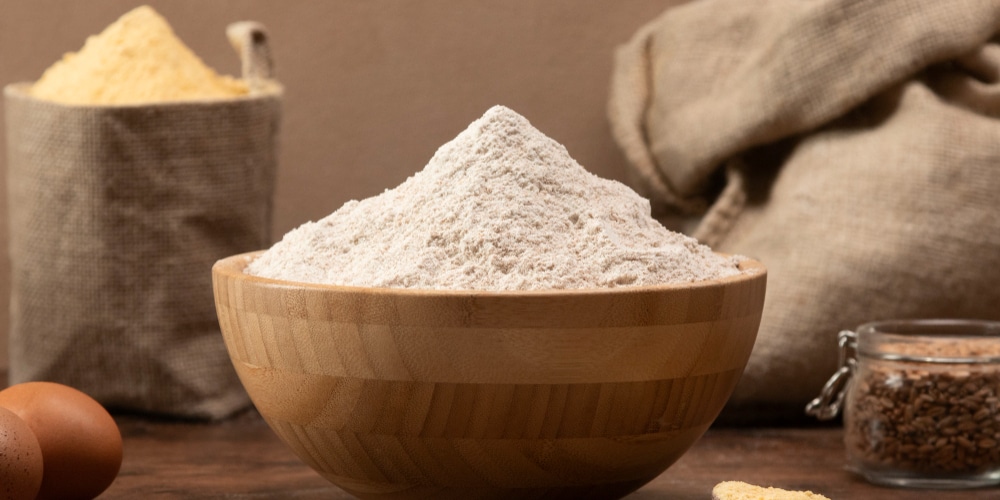Is whey protein bad for your kidneys? Experts reveal the TRUTH
Whey protein, a popular fitness supplement, is safe for healthy individuals when used correctly, but requires caution for those with kidney disease
Author
Author
- admin / 15 hours

- 0
- 7 min read

Author
Consuming whey protein is safe for healthy individuals and supports muscle building and recovery, while those with kidney issues should monitor intake, as excessive protein can strain the kidneys.
FACT:
True. For healthy individuals, whey protein is safe and does not harm the kidneys when consumed in moderation. However, experts advise that people with existing kidney disease should take it only under medical supervision, as excess protein can strain already weakened kidneys.
Several brands claiming to have the “best whey protein” target gym-goers, athletes, and health-conscious individuals looking to boost their protein intake. But questions around kidney safety continue to concern many.
A recent viral Instagram reel by dietician Bhawesh Gupta has stirred debate by addressing these concerns. He explains that even today, many people avoid whey protein due to fear, but it is actually a dairy product, like milk, curd, and paneer. “Our body digests, absorbs, and metabolises whey protein just like other protein sources,” he says.

While some users asked how dialysis patients with chronic kidney disease can meet their daily protein requirement, others wondered if people with kidney stones can safely consume whey protein. Considering the discussion on social media, let’s debunk whether whey protein is truly safe for the kidneys or not.
What is whey protein?
Whey protein is a widely used fitness and dietary supplement made from whey, the liquid that separates from milk during the cheese-making process. This liquid is filtered, refined, and spray-dried to create a protein powder. There are three main types of whey protein, which differ in how they are processed. Whey protein concentrate contains roughly 35 to 80 per cent protein along with lactose, fat, and minerals from milk. Whey protein isolate is more refined, containing 90 to 96 per cent protein with very little lactose or fat. Whey protein hydrolysate is pre-digested, which may help the body absorb it more quickly.
Athletes, fitness enthusiasts, and people looking to build muscle or lose weight often use whey protein. Studies suggest it can aid in muscle recovery, strength gain, and resistance training outcomes, particularly in young adults without underlying health conditions. Some research also indicates that whey protein can support weight loss in individuals with overweight or obesity because higher protein intake may promote feelings of fullness. Whey protein is a complete source of protein, containing all essential amino acids that the body cannot produce on its own, making it a convenient option when dietary protein intake is insufficient.
Are there any side effects?
Although whey protein offers health benefits, it can cause side effects, mainly related to digestion. Lactose intolerance is common and can cause bloating, gas, stomach cramps, and diarrhoea because lactose is the main carbohydrate in many whey protein supplements. People who are lactose intolerant may tolerate whey protein isolate better due to its lower lactose content. Non-dairy protein powders made from soy, pea, egg, rice, or hemp are alternatives for those who cannot consume dairy-based proteins.
Whey protein can also trigger allergies in people with a cow’s milk allergy. Symptoms may include hives, rashes, swelling of the face or throat, and in severe cases, anaphylaxis. It is important to distinguish between lactose intolerance and a milk protein allergy. Lactose intolerance is caused by an enzyme deficiency, while a milk protein allergy occurs due to an immune response. Overreliance on protein supplements can also lead to constipation, especially if fibre-rich foods such as fruits and vegetables are reduced. Replacing whole foods with protein supplements may also increase the risk of nutrient deficiencies because whole foods provide a wider range of vitamins and minerals.
Is whey protein safe for the kidneys?
High-protein diets make the kidneys work harder to filter protein from the blood, which has raised concerns about potential kidney damage. However, evidence suggests that in healthy individuals, high protein intake does not harm kidney function.
A 2021 study, the Liverpool Hope University Sarcopenia Aging Trial, investigated 100 older adults who were assigned to groups receiving exercise, whey protein supplementation, or both. The participants in the protein groups consumed a leucine-enriched whey protein drink three times a day based on body weight. Researchers measured kidney function, insulin resistance, cardiometabolic markers, and various blood biomarkers before and after the intervention.
The study concluded, “Sixteen weeks of leucine-enriched whey protein supplementation alone and combined with resistance-based exercise improved cardiometabolic health markers in older adults. Kidney function (eGFR) remained unaltered.”
At the same time, research indicates that individuals with pre-existing kidney disease may experience worsening kidney function if they consume a high-protein diet, so it is important for these individuals to carefully monitor protein intake.
What experts recommend
Rajeshwari Panda, Head of the Dietetics Department at Medicover Hospital, Kharghar, Navi Mumbai, explains that whey protein is essentially extracted from milk and comes in various forms, such as isolate and hydrolysate.
According to her, “It is completely safe and primarily designed for individuals who lack sufficient protein in their daily diet. In some cases, due to work, medical conditions, or other reasons, people fail to meet their protein requirements through food alone, and that’s where whey protein helps.”
She adds that whey protein is not only used by fitness enthusiasts but is also beneficial for patients with higher protein needs. “For example, cancer patients often require a much higher amount of protein, which can be difficult to achieve through diet alone. Whey supplements, which also contain added vitamins and minerals, become very helpful in such cases, especially for those on restricted or tube feeding,” Panda explains.
When asked about the risk of kidney damage, Panda clarifies that whey protein is safe for healthy individuals when taken in the right amount and at the right time. “There is no risk if used correctly, but self-supplementation without guidance can be harmful,” she cautions.
However, she points out that people with pre-existing kidney issues need to be more careful. “If your kidneys are already damaged and their filtering ability is compromised, excess protein can put additional strain on them and worsen the condition,” she says.
Panda further explains that not all whey supplements are the same. Clinical formulations differ for patients with conditions such as cancer, liver, or kidney disease. “For example, a gym supplement scoop may contain 25 grams of protein, while a clinical supplement designed for kidney patients may contain just 4 grams. These are disease-specific formulations that help the body heal rather than cause further damage,” she notes.
Addressing concerns about allergies, she adds that, “Those who are lactose intolerant can choose whey protein isolate, which contains very little lactose, or opt for plant-based proteins if even small amounts cause discomfort,” she advises.
When it comes to kidney patients, Panda says protein needs vary from person to person depending on their medical reports. “Some may have high potassium, some low, some high creatinine, some low. So there can’t be a single rule for everyone,” she explains. Generally, she adds, “for kidney patients, protein intake is reduced to around 0.8 grams per kilogram of body weight per day.”
However, she stresses that many patients misunderstand this advice and end up eating too little protein. “We often find that kidney patients consume only about 15 grams of protein daily when they might actually need 50 grams or more. Cutting protein too drastically can do more harm than good,” she warns.
In conclusion, Panda says, “For healthy individuals, whey protein is absolutely safe. For those with kidney or other medical conditions, it should be taken under medical supervision, with the type and quantity tailored to their needs.”
Also read: Fact Check: Can kidney stones be removed without surgery?
Do you have a health-related claim that you would like us to fact-check? Send it to us, and we will fact-check it for you! You can send it on WhatsApp at +91-9311223141, mail us at hello@firstcheck.in, or click here to submit it online.










